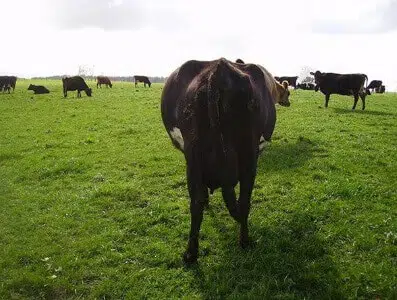Although you may be celebrating the recent rain and subsequent pasture growth, it doesn’t come without its own set of problems. Pasture bloat or frothy bloat is a condition that affects livestock when they are placed onto a fresh pasture that has a high percentage of legume content.
So what is the Risk Of Bloat? A diet containing a high percentage of legumes or young grasses can result in the release of a large amount of soluble proteins into the rumen (the first stomach). This affects the rumen fluid by making it become thicker. The thicker rumen fluid has the ability to trap the gases that are produced from the fermentation process of breaking down the food in the rumen. This can create foam in the rumen which is why this bloat is often referred to as frothy bloat. Once the gases are trapped in the fluid the animal cannot expel them by belching like they usually do and if they build up too much then in can result in death.

The key to prevent the Risk of Bloat
One of the easiest ways to prevent bloat is to manage your pasture and control grazing. To prevent livestock gorging themselves on new pasture it’s a good idea to introduce them to it gradually. You can also fill them up before letting them out onto the pasture by feeding them forage such as hay or straw. This introduction process is essential to allow the bacteria in the rumen to adjust and become accustom to the new food source. Over a few days of introducing cattle to fresh pasture, they will become accustomed to it and will moderate their own intake to prevent bloat and source out rougher forages such as hay if necessary.
Another way to prevent bloat is via medication and anti-foaming agents. Anti-foaming agents such as Paraffinic Oil can be sprayed onto a chop that is to be grazed that day and are useful preventatives if using a strip grazing approach. The oil gives approximately 2-4 hours protection once it has been consumed, so it is important that it is consumed for the entire grazing period. Directly drenching cows with detergent is also effective in controlling bloat, but this method can be time consuming and increases work rate.
Bloat blocks containing detergents are an easy prevention method and can be placed in the paddock with livestock to help prevent bloating. A downfall to these are that livestock to have to consume a certain amount for them to be effective which can be hard to control.
So if you’re interested in finding out more information about your pasture before you put your livestock on it why don’t you try our express feed test today for just $66.